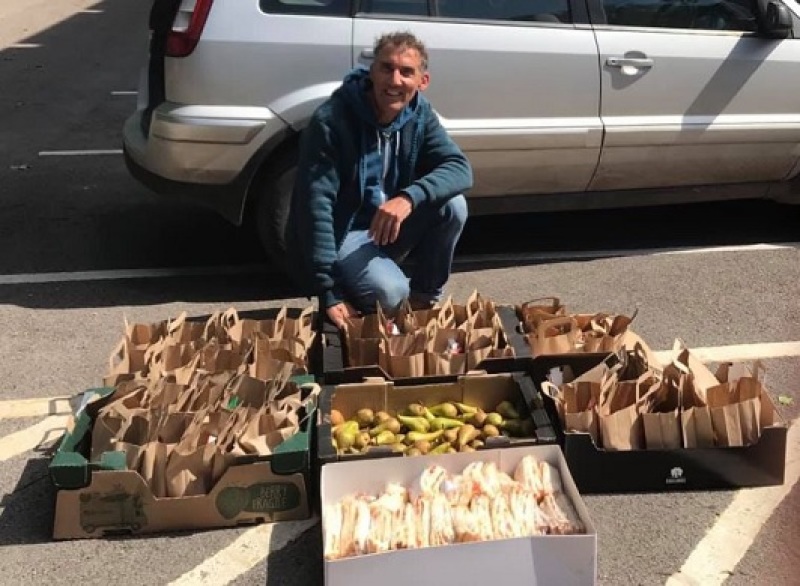
The authorities dropped a lawsuit and fines against a Christian volunteer who served a homeless community in an English town during a lockdown last year.
Jan Niedojadlo volunteered at the Lord's Soup Kitchen, a group that provided hot meals for the homeless in Taunton from January to April 2020. But in early April last year, when Niedojadlo was preaching to a woman, the Avon and Somerset Police questioned him for staying out of the house without a valid reason. He explained that he was part of a charity group but police charged and fined him with £60 (about $85.10), Christian Today reported.
In accordance with the local government's COVID-19 guidance, people doing voluntary activities are allowed to leave their houses during lockdown.
The organizer of the soup kitchen, Karen King, told the court about the town's pandemic guidelines, as well as Niedojadlo's involvement with their group.
Expert witness Dr. Martin Parsons said that his case has a "significant conflict between this aspect of freedom of religion both in terms of how it has been developed in British constitutional history and the interpretation of current Coronavirus regulations by Avon and Somerset Police."
The Crown Prosecution Service (CPS) accepted the volunteer's argument and dropped his case, saying that "it is not in the public interest."
Andrea Williams, founder and director of Christian Legal Centre (CLC), the legal organization which represented Niedojadlo in the court, agreed with CPS' statement.
She said that ministering to vulnerable people in the street has always been a part of England's history, meeting various needs of the community, particularly the poor.
"Christian preaching and outreach to the most vulnerable on our streets has a long and revered history in this country. For centuries it has played a vital role in meeting communities' material, emotional and spiritual needs, especially for the homeless," she said.
"This pandemic, and cases such as Jan's, has exposed how as a society we are forgetting how important the role of the church and Christian outreach is in our communities. All Jan was doing was making the homeless aware of where they could get a warm meal and of the love that Jesus has for them at an especially vulnerable time," Williams added.
Further, the CLC director questioned the authorities' actions towards Christians who minister to the homeless.
"Christians, whether preaching or supporting the homeless have been continually met with hostility by the police and have been fined and even arrested. How is this in the public interest?" she pointed out.
Glad that the court saw the "sense" in Niedojadlo's case, she was hoping that other Christians inflicted with fines for the same reason would also be freed.
"We are pleased that the courts have seen sense in this case, and hope that fines against other preachers and voluntary workers will also be thrown out," Williams stated.
Though delighted with CPS' decision, Niedojadlo stressed that the lawsuit should have never "got [that] far".
He argued that while people are told to "stay at home to save lives" during the lockdown last year, the homeless were "in danger and were forgotten".
The volunteer went on to say that the town encounters "significant issues with homelessness" and the support provided by the soup kitchen "was a lifeline" during "an extremely difficult time".
"The whole purpose of me being out on the streets was to bring hope to the homeless," he pointed out.
"The attitude of the community support officer and the police towards me was unbelievably hostile and dismissive. I was treated like a nuisance. There was a lack of respect, humanity and understanding of what Christian outreach and preaching is and why it is important," he further stated.
Niedojadlo was hoping that his case would help other believers who are facing the same situation. He also encouraged them to challenge the fines imposed by authorities and not be "intimidated into silence and inaction".
























